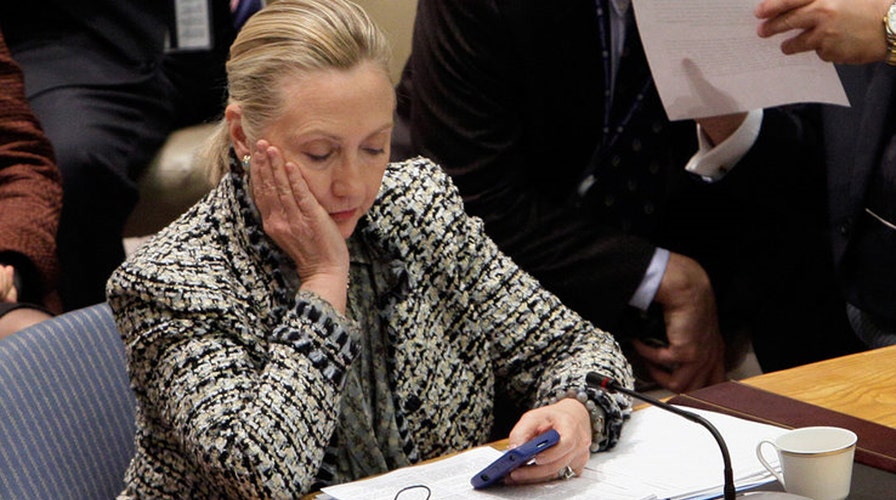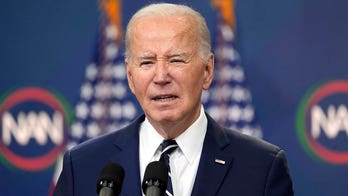State: Clinton's use of private email was not widely known
Chief intelligence correspondent Catherine Herridge reports from Washington
A series of emails between American diplomats in Pakistan and Washington over drone strikes are the focus of the criminal probe involving presumptive Democratic presidential nominee Hillary Clinton's handling of classified information, according to a report Thursday by The Wall Street Journal.
The emails in 2011 and 2012 were sent through a "computer system for unclassified matters" that gave the State Department input into whether a Central Intelligence Agency drone strike went forward, congressional and law enforcement officials briefed on the FBI probe told the Journal.
Some of those emails were then sent by then-Secretary of State Clinton's aides to her personal email account and private server, officials told the Journal.
The vaguely worded messages, however, didn’t mention the “CIA,” “drones” or details about the targets, the Journal reported.
The emails were written within the often-narrow time frame in which State Department officials had to decide whether or not to object to drone strikes before the CIA pulled the trigger, officials told the newspaper. The still-secret emails are still a part of the ongoing FBI investigation.
In January, the intelligence community deemed some of Clinton’s emails “too damaging" to national security to release under any circumstances, a U.S. government official close to the ongoing review told Fox News. A second source, who was not authorized to speak on the record, backed up the finding.
The determination was first reported by Fox News, before the State Department formally announced that seven email chains, found in 22 documents, will be withheld “in full” because they, in fact, contain “Top Secret” information.
Law-enforcement and intelligence officials told the Wall Street Journal that State Department deliberations about the covert CIA drone program should have been conducted over a more secure government computer system designed to handle classified information.
State Department officials told FBI investigators they communicated via the less-secure system on a few instances, sources told the Wall Street Journal, which happened when decisions about imminent strikes had to be relayed fast and the U.S. diplomats in Pakistan or Washington didn’t have ready access to a more-secure system, either because it was night or they were traveling.
Emails sent over the unclassified computer system sometimes were informal discussions that occurred in addition to more-formal notifications through secure communications, the officials said.
One exchange reported by the Journal came before Christmas in 2011 when the U.S. ambassador sent a note about a planned strike that sparked an email chain between Clinton's senior advisers. Officials said the exchange was clear those involved in the email were having discussions because they were away from their officials and didn't have access to a classified computer.





